Photos: The Rise of the Volocopter
A helicopter has just one rotor to provide lift. This machine has 18
If you’re disappointed that you don’t have a flying car in your driveway yet, you can take solace in the news that you soon might be able to test-drive an affordable private helicopter at a nearby dealership.
This past November, engineers at the German start-up e-volo celebrated the maiden flight of their battery-powered “volocopter,” which made several takeoffs and landings within a 72-foot-high hangar. In the coming year, engineers will continue working on the prototype, which the company boasts will be lighter, safer, quieter and greener than any other helicopter in the world.
That’s because a traditional helicopter uses one rotor to provide lift and a tail rotor to prevent the aircraft from spinning in circles. It maneuvers by changing the pitch of the two rotors. The volocopter has 18 small rotors mounted in a configuration that provides lift without causing the vehicle to spin. It navigates by changing the speed of individual rotors.
That design has advantages over a traditional helicopter. For one thing, it’s safer—in the event of a partial mechanical failure, the volocopter could land with as few as 12 operating rotors. And by forgoing large, heavy rotor blades, the aircraft is quieter, lighter and more energy efficient.
E-volo’s goal is to produce a volocopter capable of flying up to one hour before needing to recharge. That’s enough time for most people to commute to work—especially since they won’t be stuck in traffic.
/https://tf-cmsv2-smithsonianmag-media.s3.amazonaws.com/accounts/headshot/mark-strauss-240.jpg)
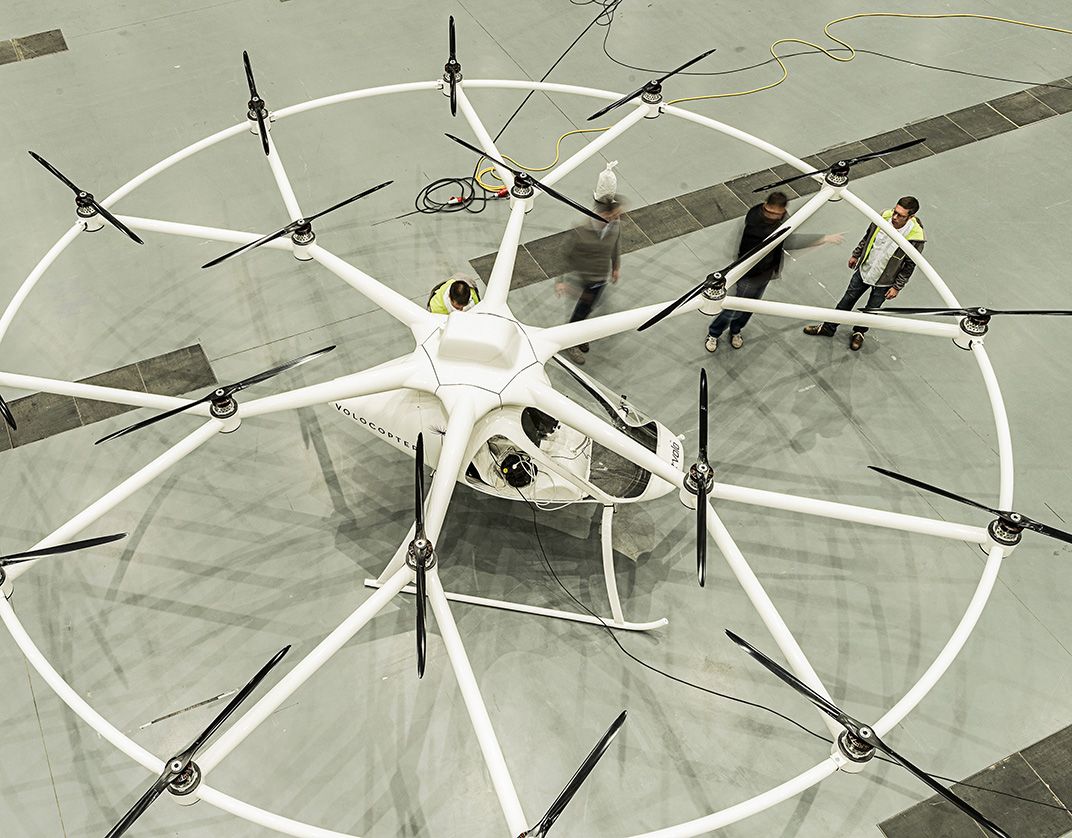
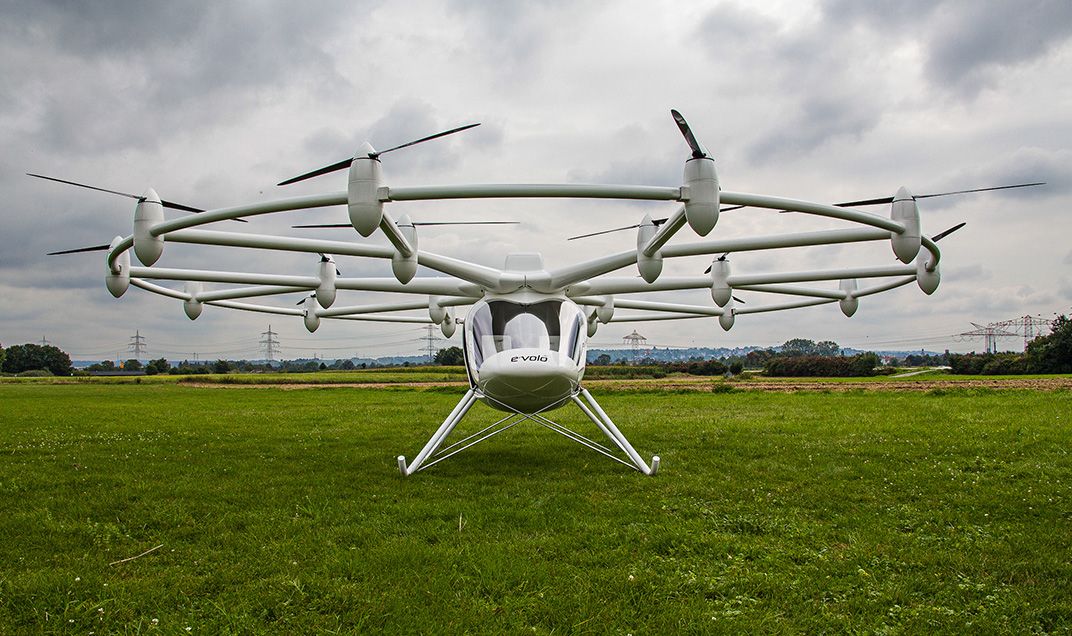
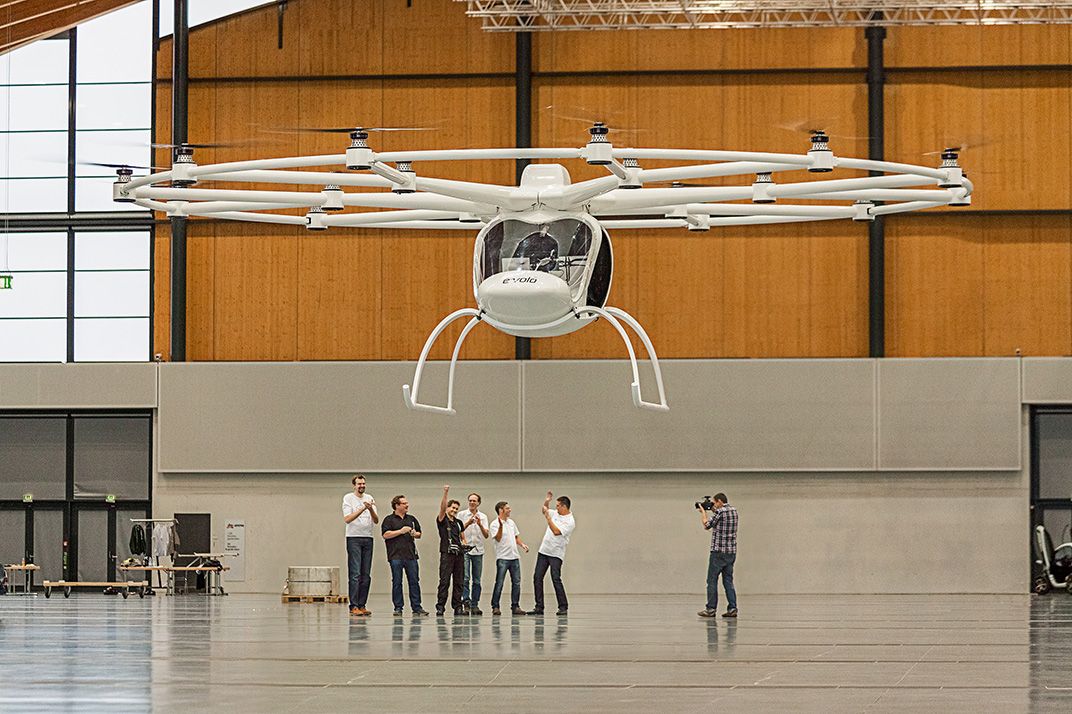

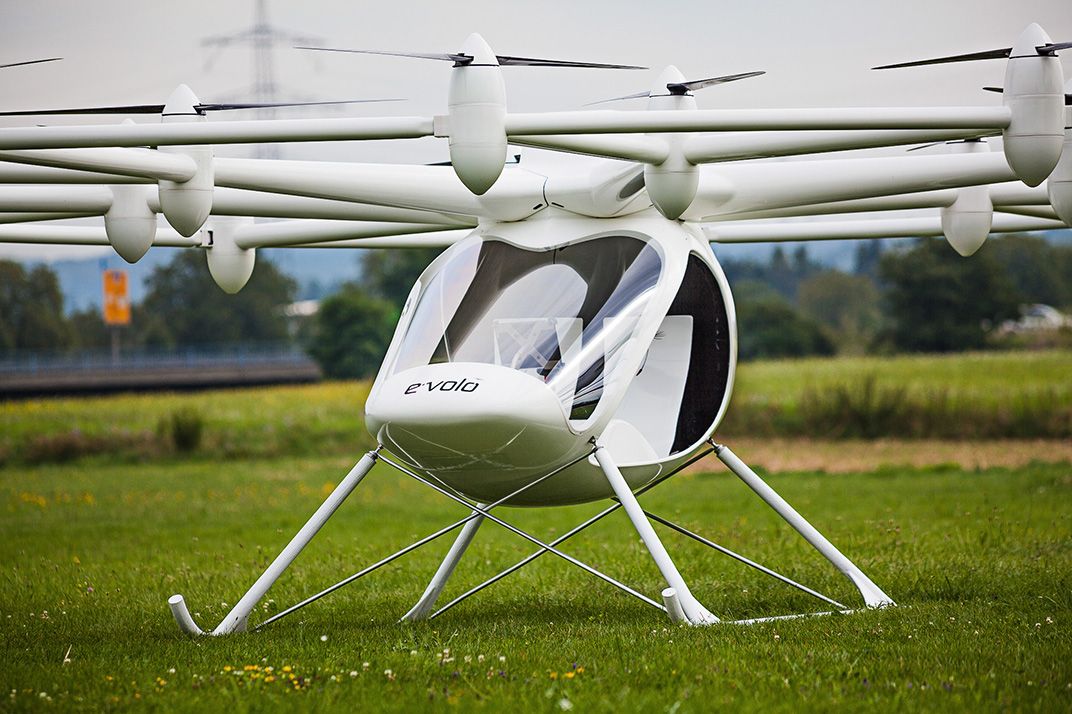
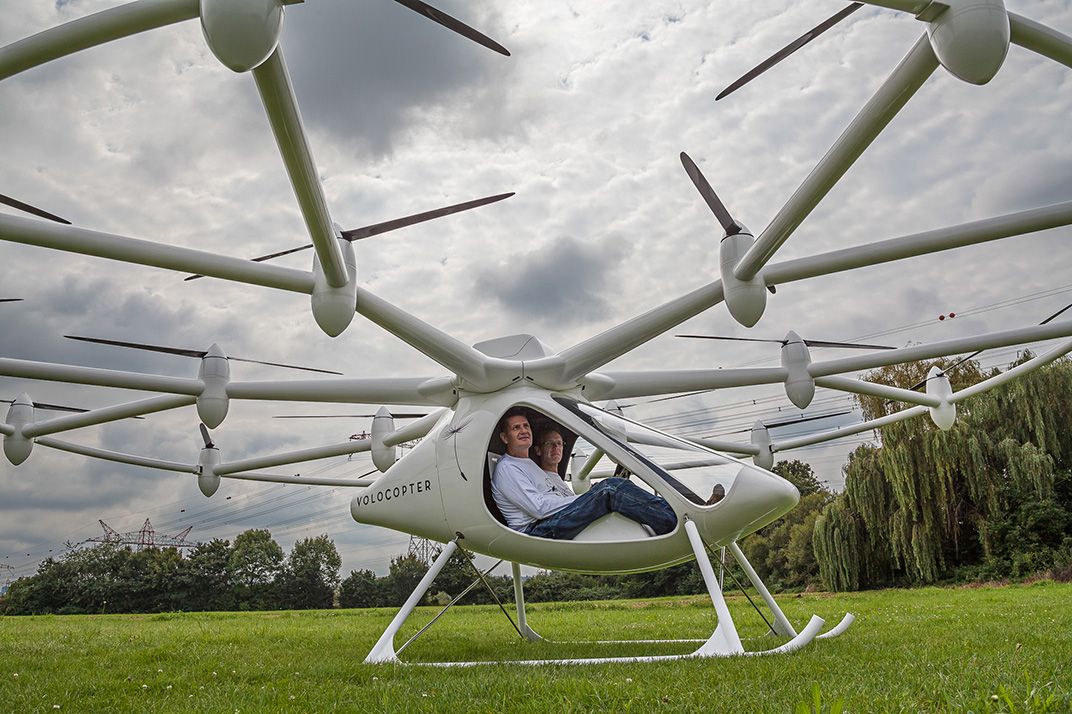
/https://tf-cmsv2-smithsonianmag-media.s3.amazonaws.com/accounts/headshot/mark-strauss-240.jpg)